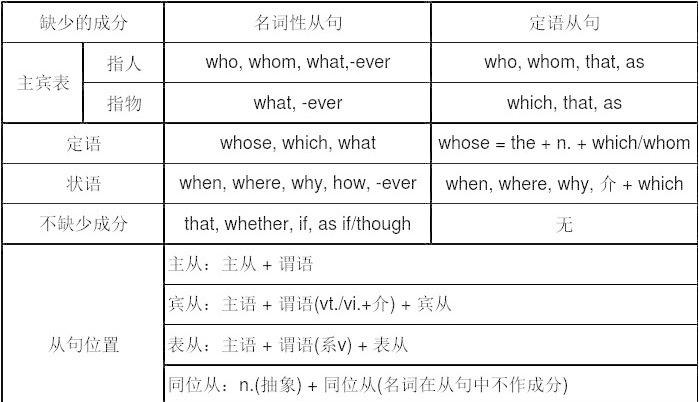英语语法中的名词性从句、定语从句和状语从句各有不同。名词性从句在句子中充当名词,可以作为主语、宾语或表语。定语从句修饰某个名词或代词。状语从句表示时间、条件、原因、目的、结果等状况。了解这些从句的区别有助于更好地理解英语语法结构,提高英语语言能力。

名词性从句
名词性从句是指在句子中充当名词的从句。它可以作为主语、宾语或表语,常用的连接词有that, whether, who, whom, whose, what, which等。例如:
- 主语从句:What he said is quite reasonable.(他说的很有道理。)
- 宾语从句:I don't know whether she is coming or not.(我不知道她来不来。)
- 表语从句:My concern is what we can do to help.(我关心的是我们能为他做些什么。)
定语从句
定语从句是指修饰某个名词或代词的从句,常用的连接词有that, who, whom, whose, which等。例如:
- The car which I bought last year has been stolen.(我去年买的车被盗了。)
- The woman who is talking to my mother is my aunt.(和我妈妈说话的那个女人是我姑姑。)
- The book that I'm reading now is very interesting.(我现在在读的那本书很有趣。)
状语从句
状语从句是指表示时间、条件、原因、目的、结果等状况的从句,常用的连接词有when, while, as, since, because, if, so that等。例如:
- He will come back as soon as he finishes his work.(他一完成工作就回来。)
- If it rains tomorrow, we will stay at home.(如果明天下雨,我们会呆在家里。)
- She runs so fast that nobody can catch up with her.(她跑得太快,没人能追得上她。)

